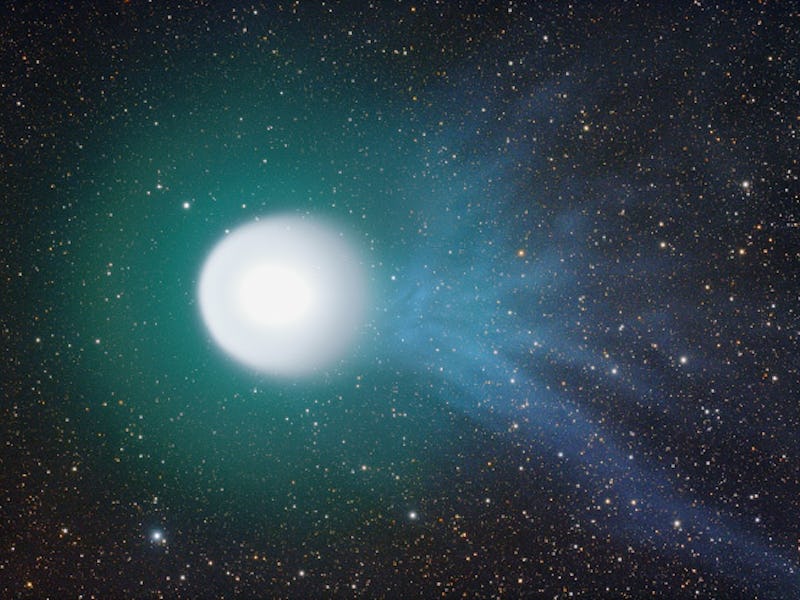How Comets Could Have Started Life on Earth
Doesn’t take seven days for this sonofabitch

The idea that other objects hurtling through space could crash into a planet or moon and “seed” life has been bouncing around for some time now, but it has never really gained much traction. However, a new study suggests it’s possible that a comet could easily crash into a planet like ours and lead to the beginning of organic life.
Most previous theories have revolved around the concept of Panspermia: the hypothesis that different meteors, comets, asteroids, and other hunks of rock are carrying microbial life all over the universe to different worlds. Instead, this latest study falls more in line with studies that have shown how organic molecules on Earth probably formed (spoiler alert: some lightning hits constituent chemicals in just the right way).
A pair of Japanese earth scientists conducted experiments that simulated the impact of comets in conditions similar to a young, few-billion year-old Earth. What they found was that that the explosive impact of an icy comet containing organic compounds (similar to what we’ve found on Comet 67P through the ESA’s Rosetta orbiter) could create the right conditions to lead to peptide formation — AKA amino acids, the precursors to proteins. The researchers presented their findings at this year’s Goldschmidt geochemistry conference in Prague.
Basically, the researchers mixed amino acids with frozen water and a silicate material abundant on comets, and shot the mash of compounds out a vertical propellant gun at 1.4 kilometers per second, simulating what an icy comet crashing into a pet might be like.
The shock of the impact was strong enough to synthesize simple amino acids that, given a few billion years more of evolution, could lead to more complex organic structures, and even life itself.
“Comet impacts might have had a key role in chemical evolution,” Haruna Sugahara, lead author of the study, told Popular Science. “It is possible that comets are delivering peptides to other extraterrestrial bodies, and that there may be chemical evolution occurring on other planets or satellites.”
In a distant past, a comet may have smashed into the Earth while carrying organic compounds and inadvertently jumpstarted the evolution of life.
More intriguing, however, is the fact that the experiment suggests we might want to start taking a closer look at planets that show evidence of impacts by comets. Icy moons like Europa could emerge with organic life from just a simple comet crash or two.